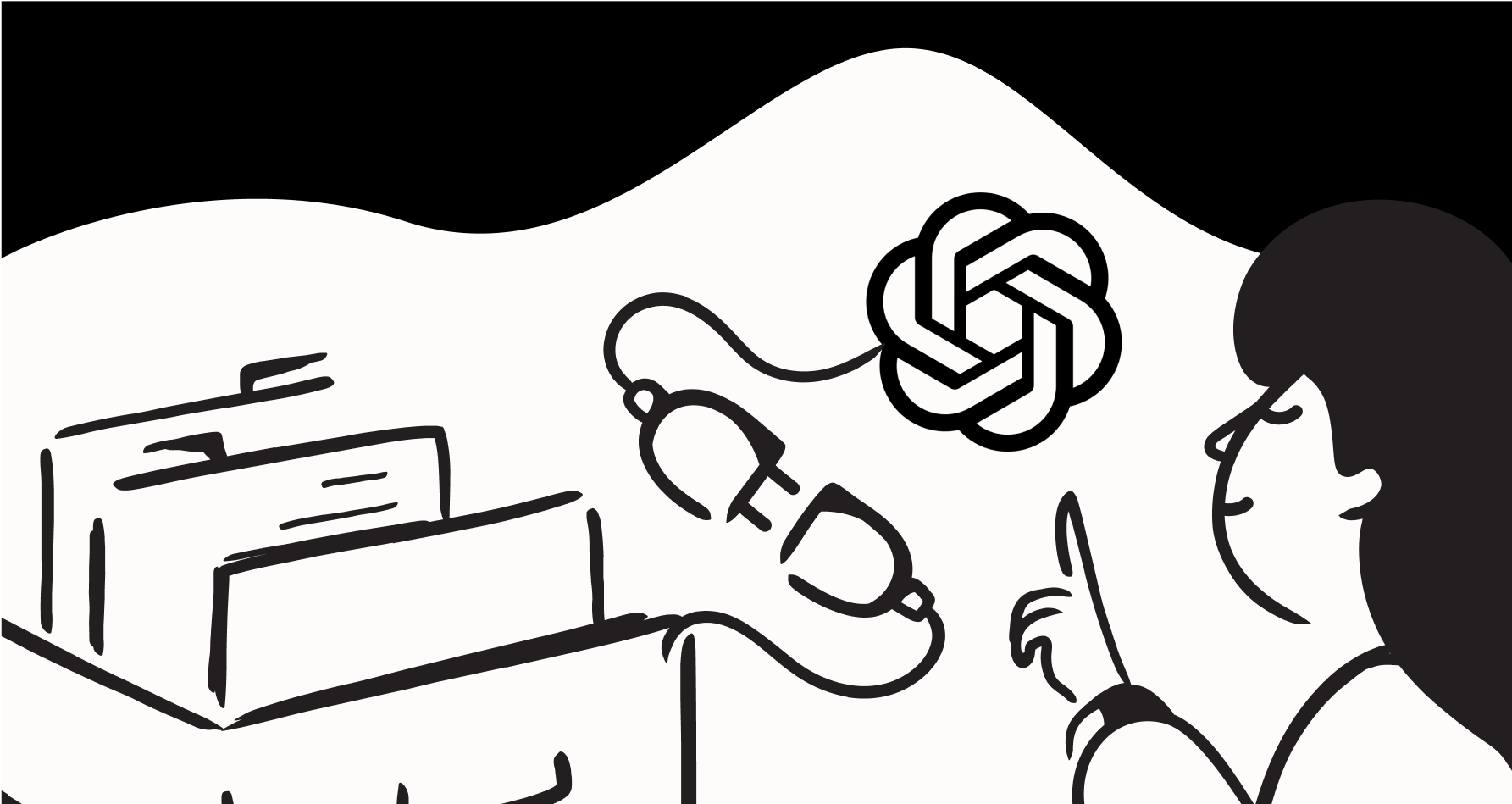
Let's be real, the conversation around AI has gotten a little out of hand. It’s not all about sci-fi robots or complex tech that only giant corporations can afford. For most of us, it’s about one thing: finding practical tools that help our businesses get more done. If you're trying to figure out how AI supporting business in the real world, you're in the right place.
This guide will give you a straightforward look at how AI is already making a difference in day-to-day operations and customer conversations. We’ll explore the real benefits and show you how modern AI tools have become so easy to use that they’re leveling the playing field. Now, smaller teams can compete by working smarter, not just harder.
What does AI supporting business actually mean?
Let's cut through the jargon. When we talk about "AI supporting business," we're talking about using smart software to handle tasks, analyze info, and interact with people. The goal is simple: save time, cut costs, and get better results. It’s not about replacing people; it’s about giving them better tools to run the business.
Here’s what that looks like in practice:
- Automating the boring stuff. This is all about taking over the repetitive, rule-based tasks that eat up your team's day. Think about data entry, scheduling meetings, or sorting incoming support tickets. AI can handle these jobs without getting tired or making typos.
- Making sense of your data. Your business is sitting on a goldmine of data from sales, customer feedback, and website traffic. AI can sift through it all to spot trends and opportunities a human might miss, helping you make decisions based on facts, not just hunches.
- Better, faster communication. AI is a huge help for communication. It can power website chatbots that answer questions 24/7, help your team draft professional emails in seconds, and give quick support to both customers and employees.
- A helping hand with content. Stuck staring at a blank page? AI can be a great brainstorming partner or a first-draft assistant, helping you write everything from marketing copy and social media posts to detailed business plans.
The real goal here isn't to replace your talented team. It's to give them a boost and free them from the mundane work so they can focus on the strategic, creative stuff that actually grows your business.
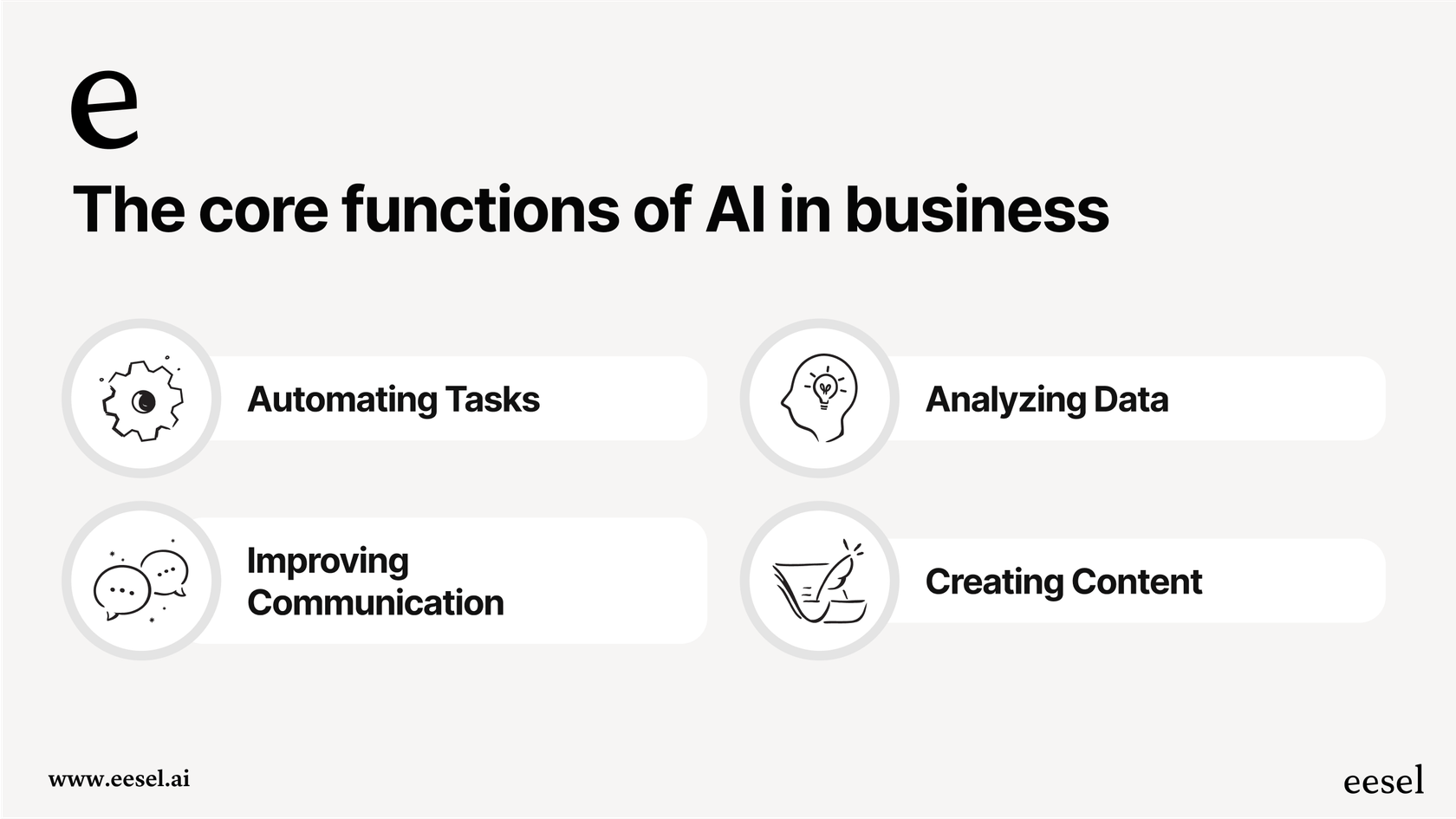
Key applications of AI supporting business in operations today
AI is already having a big impact on how companies manage their internal work. By automating tasks and offering sharper insights, it’s helping create workplaces that run a lot more smoothly.
Automating repetitive administrative and IT tasks
We’ve all had those days filled with time-consuming tasks. Manually sorting emails, typing up meeting notes, and answering the same basic IT questions over and over again is a recipe for burnout. It also pulls focus from bigger projects. This is one of the first and most obvious places where AI can lend a hand.
AI tools can automatically organize your inbox, create summaries of your calls, and even handle basic IT support questions. For instance, instead of an IT specialist spending their morning resetting passwords, an AI agent can do it instantly. Specialized tools can take this even further by automating how you manage tickets in your help desk. For example, eesel AI offers AI Triage to keep your help desk organized and AI Internal Chat to give employees instant answers from your knowledge bases, like Confluence or Google Docs, without distracting the IT team.
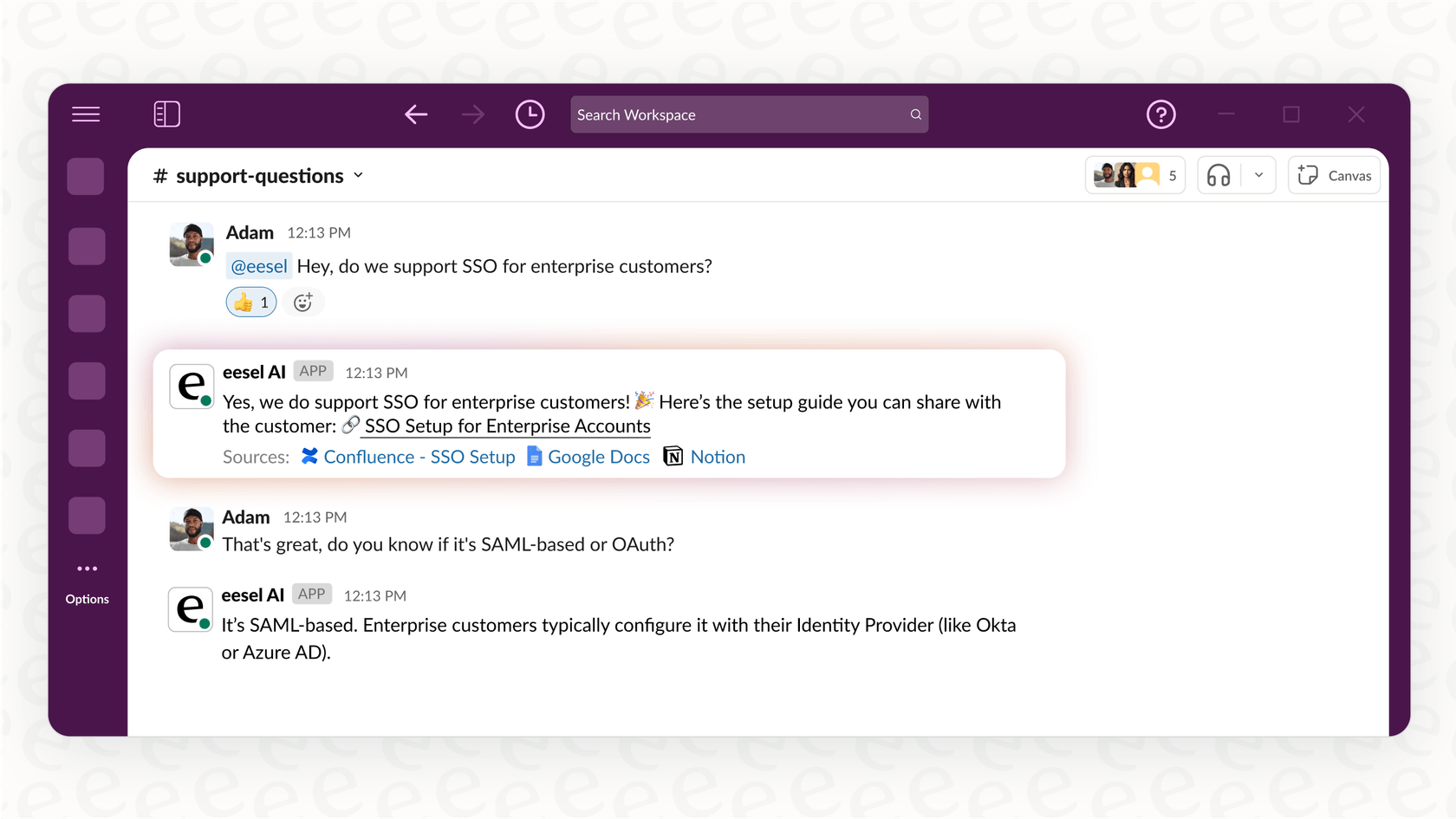
This kind of automation frees up your skilled team members to focus on the tougher problems that actually need their expertise.
Streamlining sales and marketing workflows
Sales and marketing teams are also getting a lot out of AI. It can help create targeted content, analyze how different campaigns are performing, and sort audiences for more personalized messages. Work that used to take days of research and writing can now be drafted in minutes.
For sales teams, AI can help write personalized outreach emails and even look at responses to qualify leads. This makes sure reps spend their time talking to people who are actually interested. A big part of making this work is finding a tool that can learn and adopt your brand's specific voice. An AI that sounds like a generic robot won't connect with your customers, but one trained on your past communications can create content that feels genuinely you.
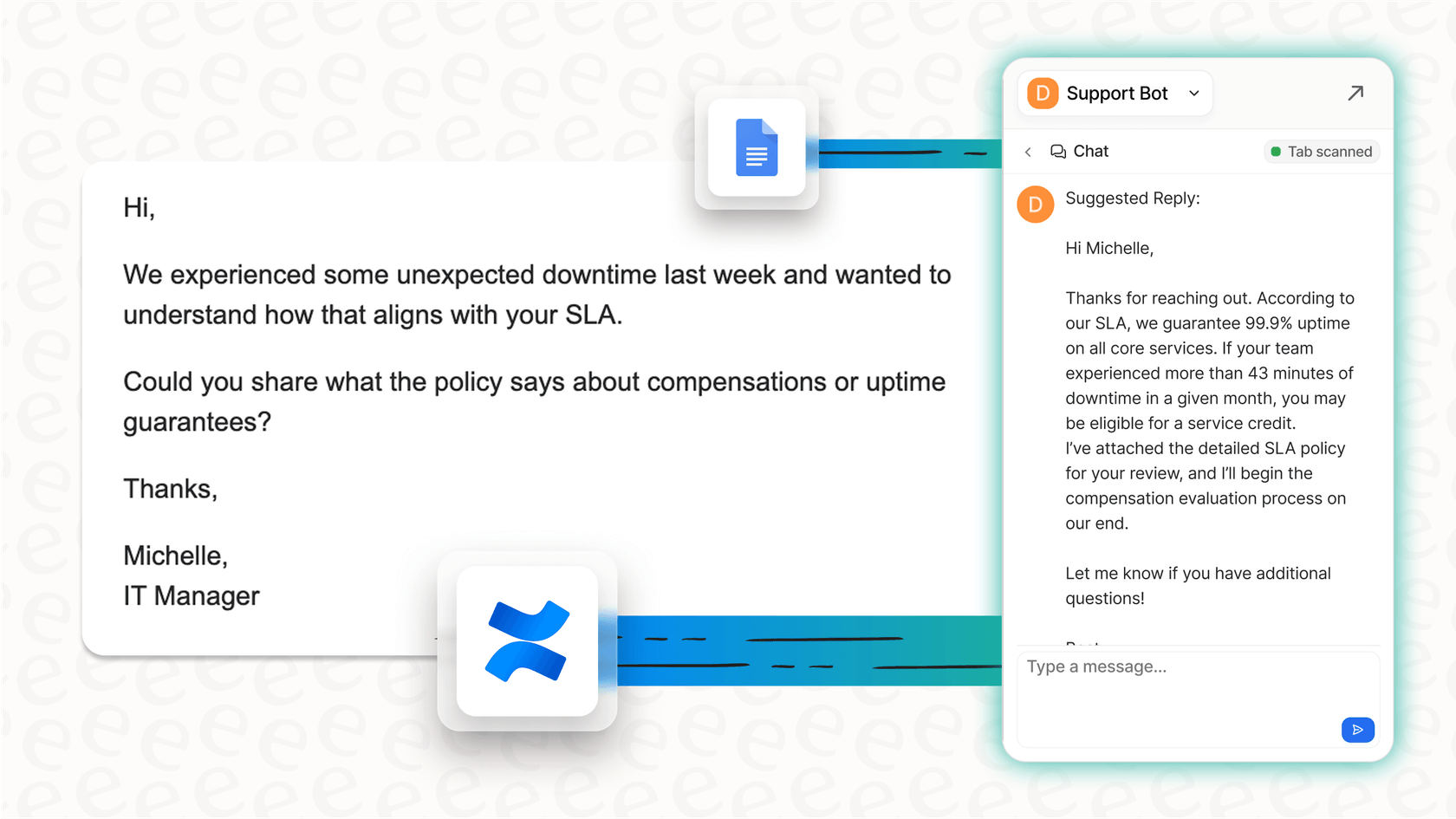
How AI support helps make better decisions with data
A lot of business decisions come down to experience and a gut feeling. While that intuition is incredibly valuable, AI adds a dose of hard data to the mix. It can process and analyze huge amounts of information, far more than any human team could realistically handle.
For example, a retail business can use AI to predict how much inventory it will need for an upcoming holiday, which helps avoid running out of stock or ordering way too much. A software company can analyze thousands of customer comments to figure out the most requested features for its next update. By turning raw data into clear insights, AI helps you move from guessing to knowing.
How AI in business transforms the customer experience for growth
Improving how things run internally is great, but AI's impact on customer-facing roles is where things get really interesting. In today's market, a great customer experience can set you apart, and AI is giving businesses new ways to keep their customers happy.
Providing instant, 24/7 customer support
People now expect immediate answers, whether it's 2 PM on a Tuesday or 2 AM on a Sunday. Staffing a support team around the clock is expensive and often not practical, especially for smaller businesses. This is where AI-powered chatbots and agents come in. They can instantly handle common questions, from "Where is my order?" to "How do I reset my password?", which makes customers happier and cuts down on wait times.
Of course, we've all dealt with those frustrating, unhelpful chatbots that just send you in circles. The solution isn't just any AI; it's an AI that's trained on your company's actual knowledge. The key is to use an AI that truly understands your business. Unlike generic bots that just guess, eesel AI unifies all your knowledge, from your help center and Google Docs to your past support tickets, to provide accurate, context-aware answers. It even learns your brand voice from day one.
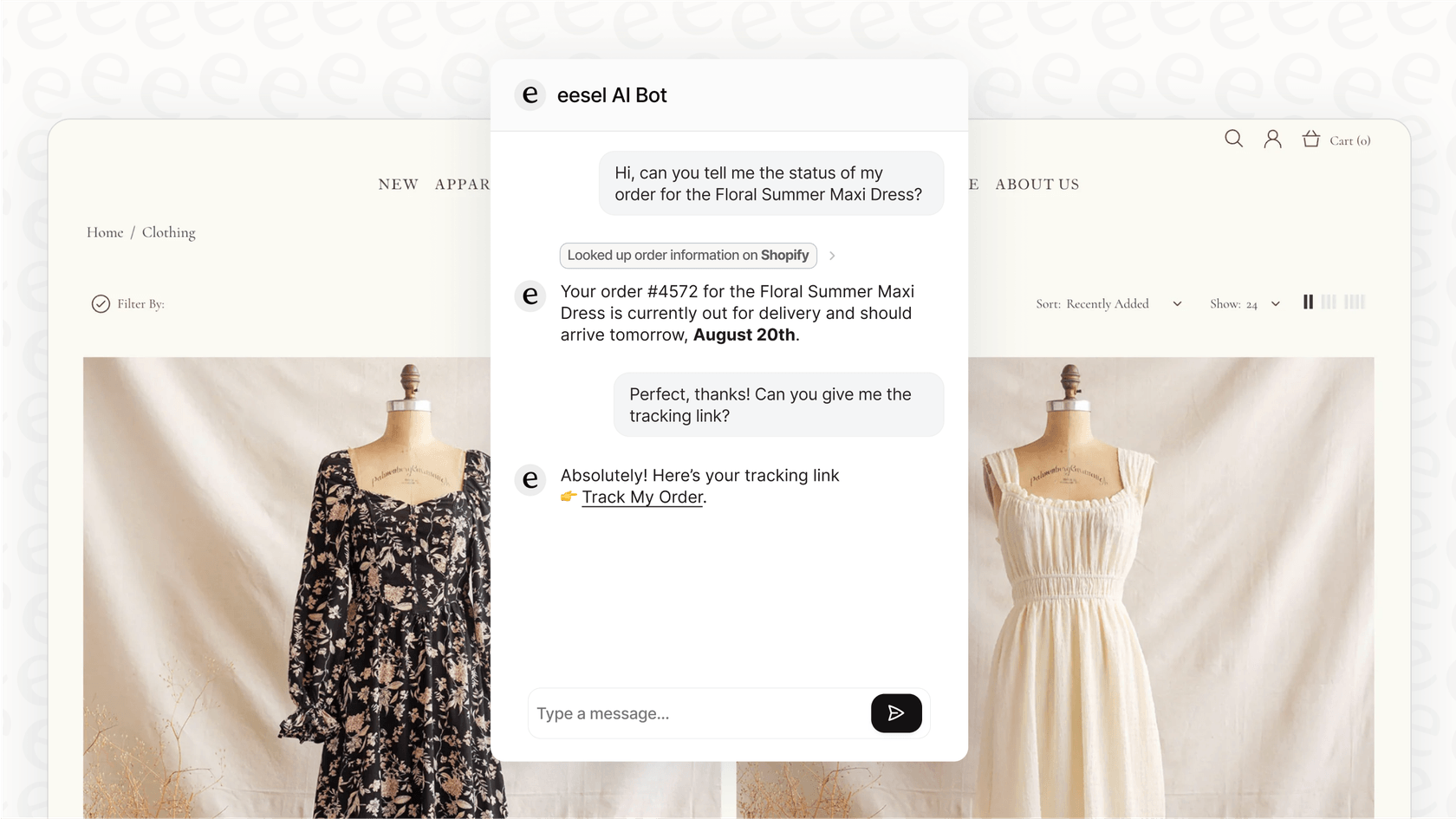
Empowering support agents to be more effective
AI isn't just about full automation. It's also an amazing tool for your human agents, acting as a “copilot” to make them faster and more effective. Picture an agent dealing with a tricky customer issue. Instead of having to manually dig through knowledge base articles or ask a colleague for help, an AI can instantly pull up the right information and even suggest a response.
This lets your agents focus on the most complex problems where a human touch really matters. It also boosts productivity and shortens the learning curve for new hires, since they have an expert assistant by their side from day one. Tools like the eesel AI Copilot integrate directly into help desks you already use, like Zendesk or Freshdesk. It drafts replies in your unique tone, learned from thousands of your past tickets, helping agents solve issues faster and with more consistency.
AI is definitely changing how we do things, more so on businesses. Watch this video to know more.
Testing and deploying AI supporting business tools with confidence
One of the biggest fears businesses have is launching a customer-facing AI that gives wrong answers, frustrates people, and hurts their brand. How can you be sure your AI is ready before it ever talks to a live customer? The answer is simulation.
Being able to test your AI in a safe, controlled environment is a must. This is where a platform like eesel AI really shines. Its powerful simulation mode lets you test your AI agent on thousands of your past tickets. You can see exactly how it would have responded, get accurate forecasts on how many tickets it can solve, and tweak its behavior in a risk-free space before you go live. This takes the guesswork out of the equation and gives you a peace of mind that your AI will be a genuinely helpful resource for your customers.
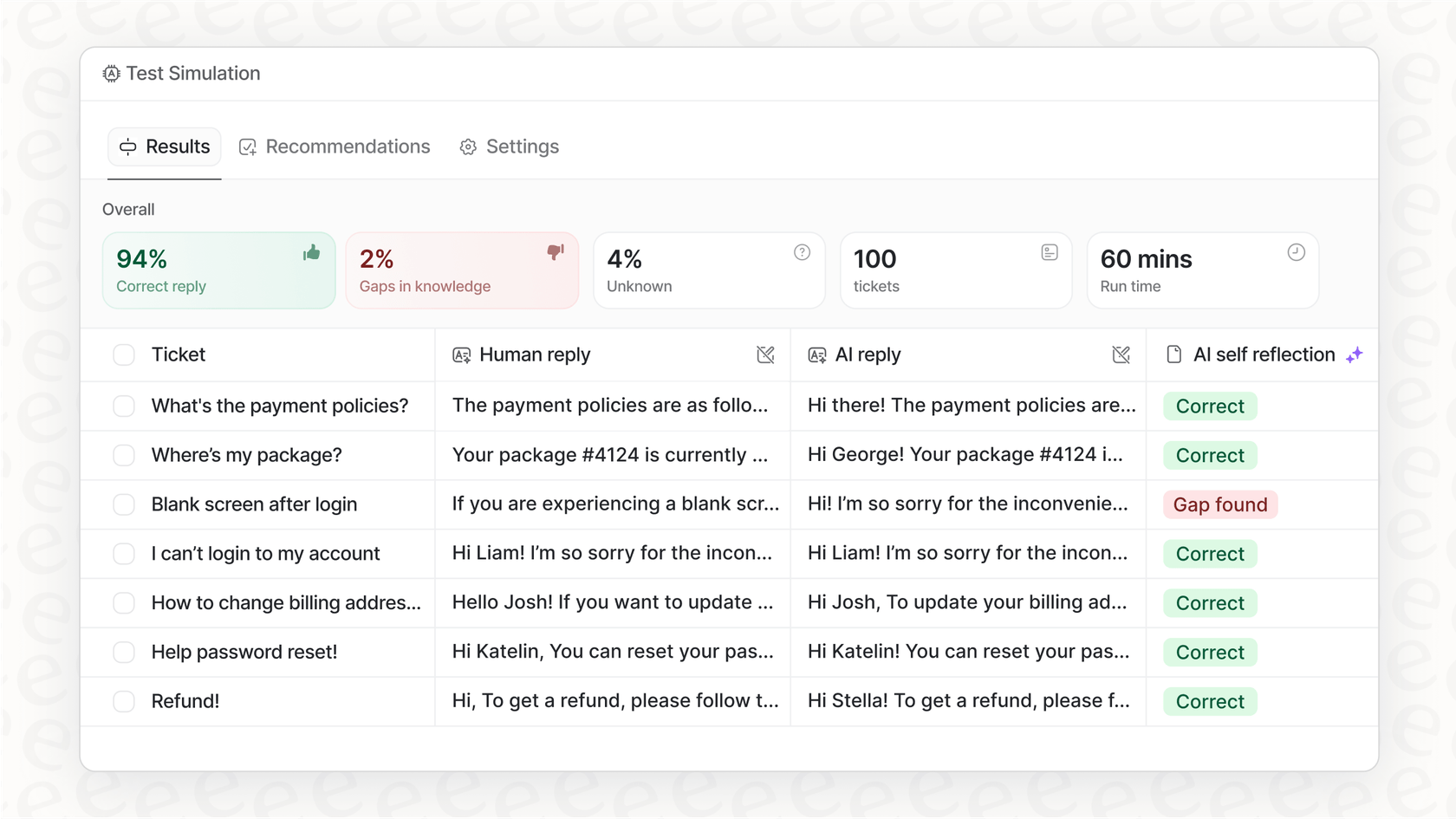
A simple framework for getting started with AI supporting business
Adopting AI doesn't have to be some massive, complicated project. If you follow a few simple steps, you can start small, show the value, and scale up from there.
Identify needs and choose the right tools
The best way to start is with a single, clear pain point. Don't try to boil the ocean. Instead, find one key area where you could see a big improvement. Maybe it's cutting down the response time for "where is my order?" tickets or creating an internal FAQ bot for your sales team.
Once you have a goal, you can look for the right tool. This can be tricky. Many AI platforms have long sales cycles, force you into demos, and require complex implementations that mess up your whole workflow. Look for tools designed to be easy. eesel AI is built to be completely self-serve, so you can sign up and go live in minutes, not months. It connects with your existing help desk with just one click, so you don't have to change how you work.
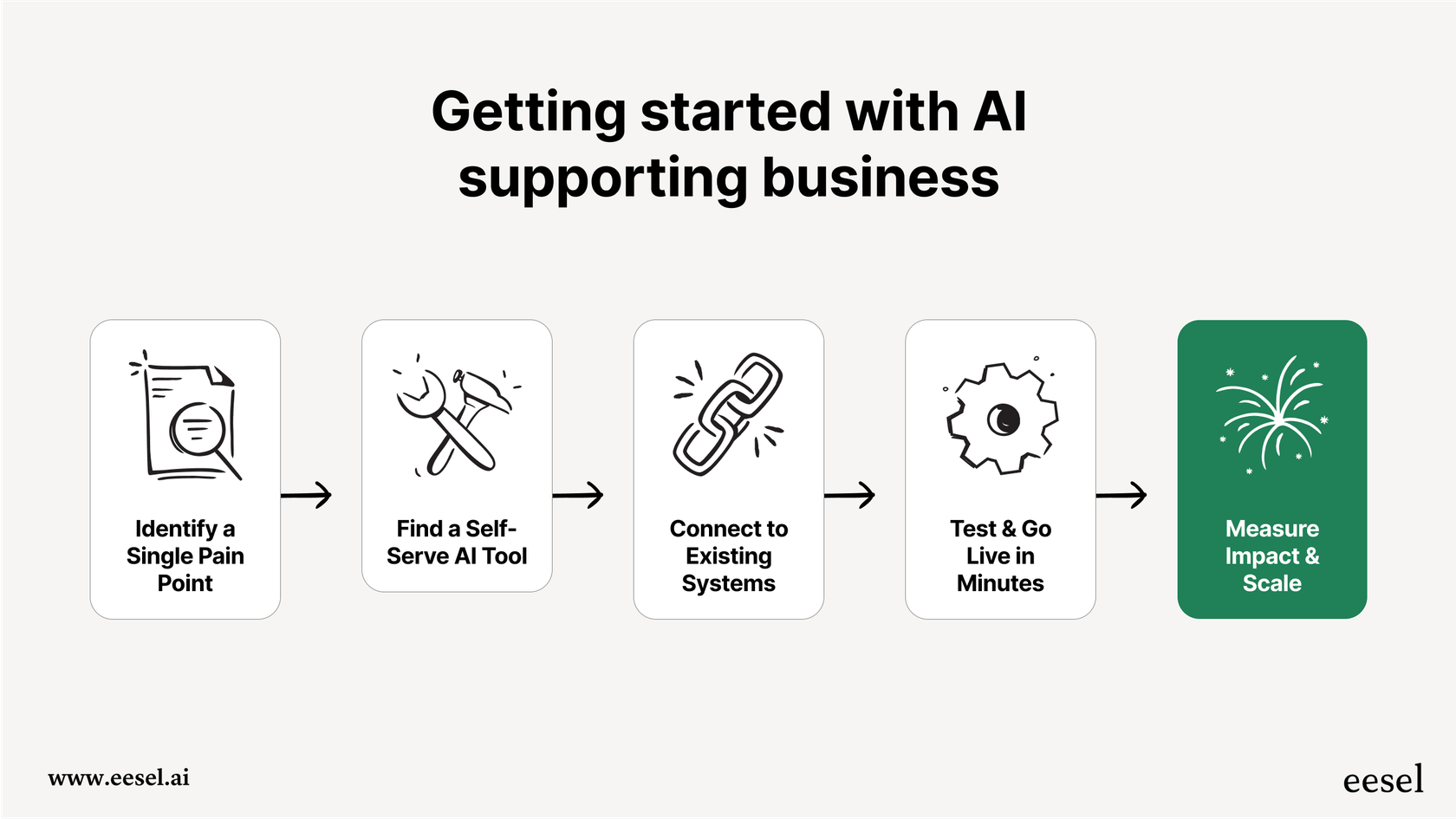
Address cost and security concerns
Cost is a big deal for any business. Be careful with AI tools that have unpredictable pricing. Many vendors charge "per resolution," which means your bill goes up every time the AI successfully helps a customer. This basically penalizes you for being successful and makes it impossible to budget.
| Feature | Predictable Pricing | Per-Resolution Pricing |
|---|---|---|
| Budgeting | Easy, fixed monthly cost | Difficult, fluctuates with use |
| Cost Scaling | Cost stays the same as you succeed | Cost increases as AI resolves more |
| Incentive | Aligned with your success | Penalizes successful automation |
Security and data privacy are also non-negotiable. You need to know that your sensitive company and customer data is safe and isn't being used to train AI models for your competitors. eesel AI offers clear, predictable pricing with no per-resolution fees. Your data is only used to train your own bots, never for generalized models, and options like EU data residency are available if you need them for compliance.
Pro Tip: When you're looking at an AI supporting business tool, ask two direct questions: "How do you handle my data?" and "What is your pricing really based on?" Don't get locked into a system that charges you more every time your AI does its job correctly.
AI supporting business is ready now
So, AI supporting business isn't some intimidating, futuristic concept anymore. It's a practical, accessible tool that's ready to support businesses of all sizes, right now. From making your internal teams more efficient by automating tedious work to improving your customer experience with instant, smart support, AI offers real benefits you can see.
The technology has gotten to a point where you don't need a team of data scientists or a massive budget to get going. The best way to understand what it can do is to start small, pick a clear problem to solve, and see the impact for yourself.
Ready to see how AI can support your business in minutes? Start your free eesel AI trial and build your first AI agent today.
Frequently asked questions
Start with a specific, high-impact problem like answering repetitive customer questions. Look for self-serve tools with free trials and predictable pricing models that don't charge you per resolution, allowing you to see the value before committing to a large expense.
Not at all. Modern AI platforms are designed to be user-friendly and often integrate with your existing software, like your help desk, in just a few clicks. The best tools are completely self-serve, meaning you can get started in minutes without any coding or technical background.
The primary goal is to empower your agents, not replace them. By automating repetitive queries, AI frees up your team to focus on complex, high-value customer issues where their expertise is truly needed, acting more like a helpful copilot.
Choose a provider that is transparent about its data handling policies. Ensure your data is used exclusively to train your own AI models and is never shared or used for general training. Look for features like EU data residency if you need to meet specific compliance standards.
Don't try to solve everything at once. Identify one simple, repetitive task that consumes a lot of your team's time, such as answering "Where is my order?" questions. Automating a single, clear pain point is the best way to prove the value and build confidence.
A good AI tool should absolutely learn your unique brand voice. Platforms can analyze thousands of your past customer communications to adopt your specific tone, ensuring the AI-generated responses feel authentic and consistent with your brand.
Share this post

Article by
Kenneth Pangan
Writer and marketer for over ten years, Kenneth Pangan splits his time between history, politics, and art with plenty of interruptions from his dogs demanding attention.



